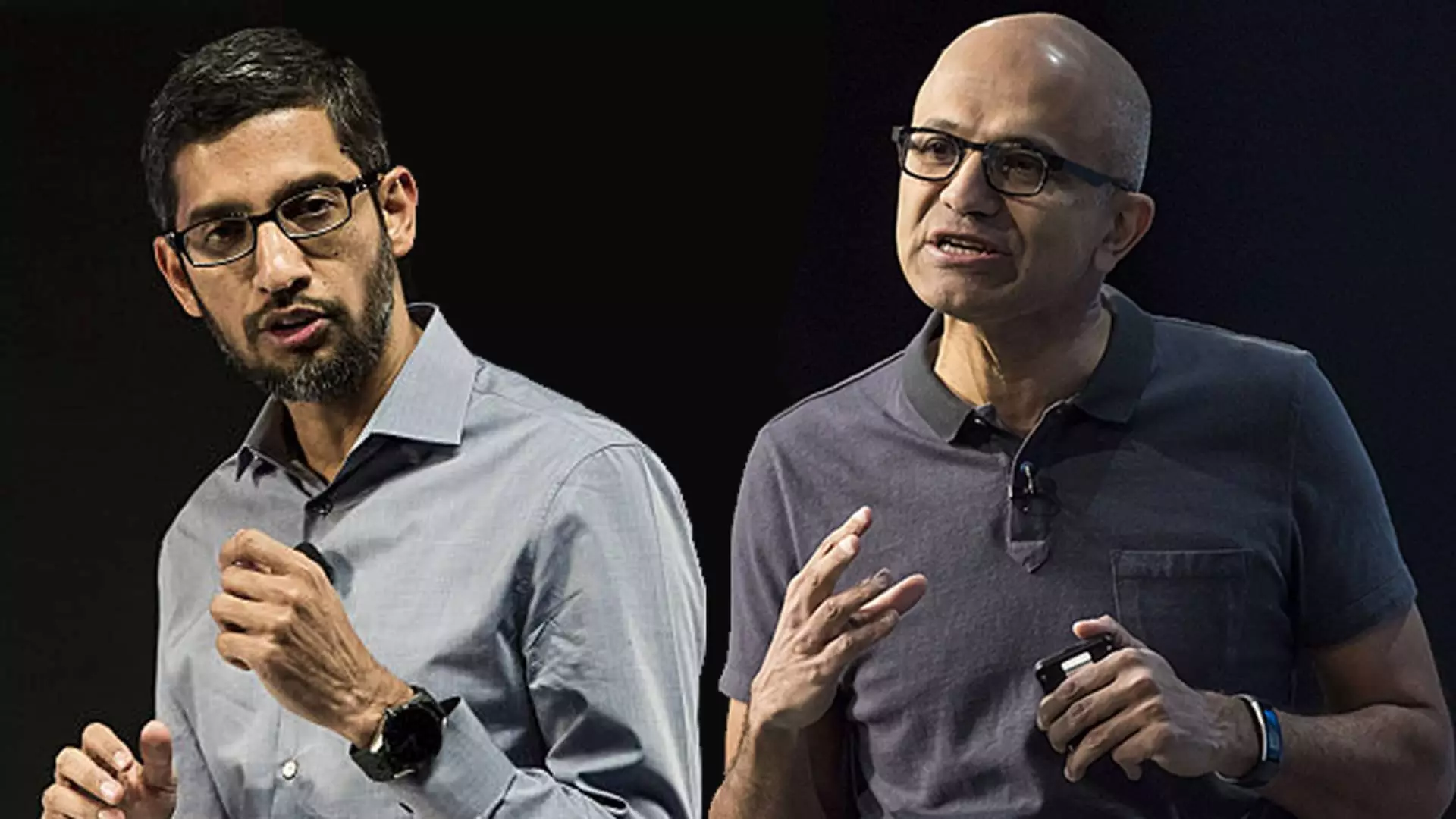In the ever-evolving landscape of technology and cloud computing, few rivalries are as pronounced as the one between Microsoft and Google. The latest chapter in this ongoing saga involves explosive accusations leveled by Microsoft against Google, claiming involvement in shadow campaigns to tarnish Microsoft’s reputation among regulators. As this conflict unfolds, it highlights not only the competitive dynamics inherent in the tech industry but also the significant ethical and regulatory implications that arise from such tactics.
Microsoft recently took an aggressive stance by publicly accusing Google of orchestrating what they term “shadow campaigns” in Europe. This is no trivial matter; such allegations suggest that Google is not conducting open and honest competition, but rather engaging in covert operations designed to manipulate perception and influence decisions made by policymakers and regulatory bodies. Microsoft attorney Rima Alaily’s blog post emphasizes that Google allegedly employed a consultancy, the DGA Group, to recruit European cloud companies that would serve as fronts for its lobbying efforts. By disguising its direct involvement, Google supposedly attempts to shape public opinion and regulatory perspectives without accountability.
The implications of these actions are profound. If Microsoft’s claims hold weight, we must consider the ethical ramifications of such a stealthy strategy in corporate rivalry. Astroturfing, defined as the practice of masking the sponsors of a message to make it appear as though it originates from grassroots participants, can ultimately distort public discourse and lead to misinformed regulatory approaches. This not only jeopardizes the competitive landscape but also raises significant questions about the integrity of the platforms involved and their commitment to fair competition.
Simultaneously, it is crucial to acknowledge the mounting regulatory pressures facing Google, both in the U.S. and Europe. The company finds itself at a particularly precarious moment, embroiled in antitrust issues that have provoked a series of legal challenges. The accusations made by Alaily appear partly informed by the broader context of increasing scrutiny over competitive practices in the tech sector. Google’s maneuverings, therefore, raise questions about its attempts to pre-emptively mitigate regulatory challenges by undermining Microsoft’s position in the cloud arena.
Interestingly, while Microsoft alleges that Google’s actions are aimed at discrediting it, Google counters by claiming that Microsoft’s licensing practices are indeed anti-competitive, reducing customer choices and hindering innovation. This clash of narratives illustrates the complexities of corporate competition in the tech sector, where each player is quick to accuse the other of engaging in unscrupulous tactics.
An essential aspect of this unfolding drama is the competitive landscape of the cloud services market, dominated by players like Amazon, Microsoft, and Google. Microsoft’s assertion that customers can save significantly by using its cloud services over competitors highlights the stakes involved in this rivalry. As the market dynamics shift—where Amazon leads and Microsoft follows—both companies are compelled to employ various strategies to capture market share.
With this competitive backdrop, Google’s alleged involvement with the Open Cloud Coalition to discredit Microsoft raises eyebrows as it appears to be a calculated move to destabilize a formidable rival. If the Open Cloud Coalition’s purpose is genuinely to foster a fair cloud services industry, transparency about funding and motivations is crucial. However, if it serves primarily to bolster Google’s interests through subterfuge, then the coalition’s legitimacy would be called into question.
As this battle between Microsoft and Google intensifies, it underscores a larger narrative about the ethics of competition in the tech industry. Manipulating perceptions through shadow campaigns raises severe ethical considerations that could threaten the foundation of trust necessary in competitive markets. Moving forward, it will be essential for regulatory bodies to critically assess not just the actions but also the motivations of companies embroiled in such allegations. The outcome of this tech rivalry could very well shape the future of cloud services and influence the regulatory frameworks governing them, highlighting the importance of integrity, transparency, and fair competition in one of the most dynamic sectors of the modern economy.



Leave a Reply